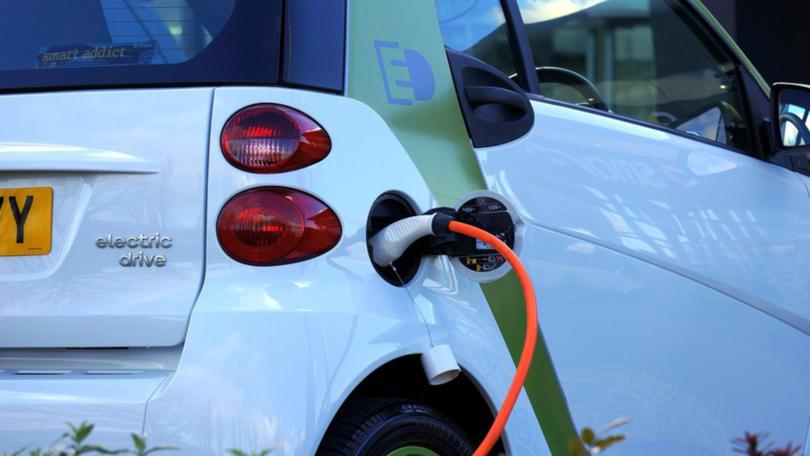Uber’s Australian boss says appetite for electric vehicles is high, downplaying concerns of fatigue
Uber’s Australian boss has played down concerns of electric vehicle fatigue, saying there’s little sign its riders are not interested in the emerging technology — at least for those who aren’t looking to buy.

Uber’s Australian boss has played down concerns of electric vehicle fatigue, saying there’s little sign its riders are not interested in the emerging technology — at least for those who aren’t looking to buy.
Emma Foley on Friday said the biggest challenge as Australia looks to drive more people into electric vehicles will be charging: where stations are located, how frequently they are placed and how easy they are to use.
Uber in Australia is aiming to achieve net zero emissions by 2040, she said, and because of the number of kilometres its drivers travel, “we can have a real impact here if we get things right”.
Sign up to The Nightly's newsletters.
Get the first look at the digital newspaper, curated daily stories and breaking headlines delivered to your inbox.
By continuing you agree to our Terms and Privacy Policy.Uber has more than 150,000 drivers and delivery people in Australia. Ms Foley, appointed just recently as the head of Uber in Australia and New Zealand, said the company had put $30 million behind subsidising its drivers to adopt electric vehicles.
In addition, it’s also offered via a partnership with EV maker BYD to give drivers access to about 10,000 vehicles over the past year.
“We’ve actually been the most successful country in the world for (EV-only rideshare option) so we’re really seeing Australian consumers respond to that,” Ms Foley told an economic forum in Sydney.
“The great thing is when you can offer those choices, that also helps . . . get drivers into vehicles, so it’s going to be a journey but one that we’re committed to.”
Ms Foley said though there was a narrative of EV demand slowing — fuelled by high prices to purchase and supply shortages — Uber was instead seeing the opposite.
“We’re doing 20,000 rides a day in electric vehicles here in Australia, so certainly on our platform, we’re not seeing the slowdown,” she said.
“Charging is going to be one of the hardest pieces to solve. We’re not going to do that alone.”
Ms Foley said government commitment to the industry through new vehicle efficiency standards, regulated just weeks ago, were welcome, but improving charging would require fresh commitments from industry for infrastructure, as well as partnerships with governments.
“We know it’s not easy . . . but we’ll figure it out over time,” she said.
